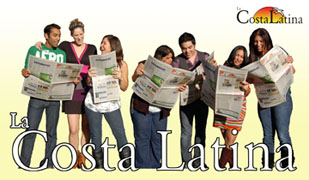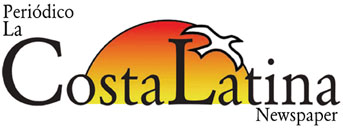 Join La Costa Latina
on
Facebook
Join La Costa Latina
on
Facebook


Advertise with us
(850) 494-7899
advertise@latinomediainc.com

|
 |
Advertise with us |
|---|
Latinas de la Costa Conversan Sobre el Cáncer de Mama
|
Latinas of the Coast Talk About Breast Cancer By Grace Resendez McCaffery, Editor of La Costa Latina Newspaper The news of Maria Ortiz’ passing (see page 5), made me think about La Costa Latina readers, specifically women who might not ever think about the risk of breast cancer. I think it’s time we begin this conversation in our community, so I reached out to my friends to talk about their experiences with this disease, and they were eager to share their stories. [Initially, I had interviewed a friend whose family has been deeply affected by breast cancer. Their family’s story is quite an ordeal, and she is still dealing with loss and concern for her own health. She decided that she didn’t want her story published, so it has been removed to respect her wishes. Due to time constrains, we were not able to rewrite the story, so we’ll continue the story from here.] The American Cancer Association (ACA) advises women to get clinical breast cancer screenings called mammograms yearly starting at age 40 and continuing as long as she is in good health. Others who are at higher risk may be recommended to test more frequently and to be more vigilant in looking for signs of breast cancer. Women in their 20s and 30 are suggested to get clinical exams about every three years. The ACA also recommends for women to know how their breasts normally look and feel and report any changes to their health care provide immediately. Monthly self-examinations are also recommended for all women as it can be done more frequently and at no cost. That is how Shelly de la Concha discovered a lump in her breast which later appeared on a mammogram. Shelly, who is from Ponce, Puerto Rico, also knew she was at risk. She survived Hodgkin’s Lymphoma—a cancer of the part of the immune system called the lymphatic system—in 2002. The occurrence of the cancer and the radiation treatments on her neck and chest put her at higher risk for breast cancer. “The radiation was supposed to cure me—and it did—but it also had possible risks.” She said. On June 4 of this year, two days before she went to Washington DC to lobby for cancer research, Shelly was diagnosed with breast cancer. “I discovered a lump during a self-examination. I didn't do it every month like I should have,” Shelly said. “I usually get a P.E.T. (Positron Emission Tomography) scan every two years and a mammogram every year,” she added, “but after ten years, I guess I didn’t think that the cancer would really come back.” Shelly says that she has two aunts on either side of her family who had breast cancer, one died from it. Doctors have discovered additional lymph nodes under Shelly’s arm. She is waiting for the results of her second biopsy. “I’m fighting, my friend,” she said. The day of this interview (July 1) was Shelly’s first day of chemotherapy. She says that she will have to continue treatments until October or November, then decide on a mastectomy and possible reconstructive surgery. She will soon undergo a genetics test to see if the cause of her cancer is a genetic precondition. If so, she says a double mastectomy will likely be advised. For now, she waits and endures the effects of the treatments to battle the cancer. “I am pretty much expecting that I will lose my hair.” Shelly said. Shelly’s says that her advice to women is to be familiar with it your body, do self-examinations every month, and look in the mirror for changes. There is so much more that we need to talk about. The Hispanic Resource Center will soon begin programs to begin the conversation in Spanish (and English) so that we can learn more and support each other within our community and among our families. Please keep in touch with La Costa Latina for future health care events and projects surrounding the subject of breast cancer and other health risks. |